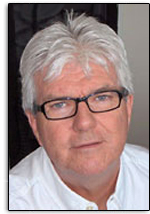German technology and attitudes toward civil life are consistently at or near the top of the ratings compared to other countries across all of Europe. I have relatives that make their home in Hamburg, the second largest city in Germany. Years ago while on a visit to see them, they showed me an amazing product they were involved with that was just being introduced to the market - plastic industrial building blocks designed to be used as walls in new housing construction. They would replace many concrete-based materials. I have to admit that, although recycling was popular amongst households at the time, little thought was given to climate change and the tonnes of greenhouse gases (GHGs) that were already being spewed into the atmosphere with impunity by countries around the world. Being part of the marketing of the blocks, my brother-in-law was able to show me firsthand how they were being utilized in the building of test' houses.
Not to put too fine a point on my age, that trip of discovery was about forty years ago and I have to say that I was as impressed at the ingenuity as I was with the real advantages of using recycled plastic. Apart from being healthier for the planet, the blocks are, amongst other things, waterproof, don't hold the cold, form perfect right-angles, are easy to finish, and less costly to transport. The blocks continue to be very popular in many countries. Each one contains some 87 percent recycled plastic. And Germany remains a benchmark and a beacon for the rest of the world to follow on a path to a cleaner climate.
On September 22, 2013, residents of Hamburg voted to take their joy back. About 51 percent of the voters cast their ballots in favour of putting their electricity, gas, and heating grids back under the control of the city. This was a reversal of earlier decisions that saw a wave of corporate sell-offs that had been happening for more than a decade.
It's a process that has been given a few awkward-sounding names including re-municipalization' and re-communalization.' Invented or not, those words adequately express the desire for local power.' According to campaign organizer Wiebke Hansen, "For the people it's self-evident that goods on which everybody is dependent should belong to the public."1
There was something else at the heart of the campaign. Many of Hamburg's residents wanted to be part of Energiewende: the transition to green, renewable energy that was quickly sweeping the country. Nearly 25 percent of Germany's electricity in 2013 came from renewables, dominated by wind and solar with some biogas and hydro thrown in. This amount is up from about six percent in 2000. In comparison, wind and solar made up just four percent of total U.S. electricity generation in 2013. The cities of Frankfurt and Munich, which, unlike Hamburg, had never sold off their power grids, had already hopped on the renewables train and pledged to move to 100 percent renewable energy by 2050 and 2025 respectively. Because they sold off assets in earlier days, Hamburg and Berlin are both in a race to catch up. Add to this the central argument for proponents of taking back Hamburg's grid: it would allow the city to get off coal and nuclear and go green.
Much has been written about Germany's renewable energy transition - particularly the speed at which it is being achieved, as well as the ambition of its future targets (the country is aiming for 55 to 60 percent renewables by 2035). The weakness of the programme has not gone unnoticed, however, particularly the question of whether the decision to phase out nuclear energy has led to a resurgence of coal in some regions.
In 2012 - with its renewable sector going gangbusters - German emissions actually rose from the previous year. Preliminary data suggests that the same thing happened in 2013. The country's emissions are still 24 percent below 1990 levels so these two years may just be an adjustment blip. Concern remains that the meteoric rise of renewables is not corresponding to an equally dramatic drop in GHGs.
Many have attributed the emissions rise to Germany's decision to phase out nuclear power, but the facts are not nearly that simple. It's true that in 2011, following the Fukushima disaster, the government of Chancellor Angela Merkel - under extreme pressure from the powerful antinuclear lobby - announced that nuclear power would be dead by 2022. The government immediately took aggressive sweeping action to begin the process. But at the same time, the powers-that-be took no similar steps to rid the country of coal-fired energy and even allowed coal companies to export power. So while a great many Germans have been enjoying life with renewables, coal power continues to grow, with some of it displacing nuclear, some replacing gas, and some of it going out the door to the export market.
In all of the analysis scarce attention has been paid to one key factor that has made possible what may be the world's most rapid shift to wind and solar power: the fact that in hundreds of cities and towns across Germany, citizens have voted to take their energy grids back from the privateers that purchased them.
During a recent interview Anna Leidreiter, a climate campaigner with the World Future Council said after the Hamburg vote, "This marks a clear reversal to the neoliberal policies of the 1990s, when large numbers of German municipalities sold their public services to large corporations as money was needed to prop up city budgets."2
Most surprising has been the force with which large numbers of the German public have turned against energy privatization. In 2013, in Berlin, 83 percent of participating voters cast their ballots in favour of switching to a publicly owned power utility based eventually on 100 percent renewable power. The resulting vote did not end in a binding majority but it was clear the public was hungry to take over their grid when current contracts end with the private companies.
Energy privatization reversals - linked specifically to a desire for renewables - have started to spread beyond Germany in recent years. For instance, in the mid-2000s, residents and officials in Boulder, Colorado, began lobbying their privatized power company to move away from coal and take up the renewable banner. The utility owner wasn't particularly interested so environmentalists and an energetic youth group arrived at a decision to take their grid back. Steve Fenberg an active member of the youth organization put it this way, "We have one of the most carbon-intensive energy supplies in the country, and [Boulder] is an environmentally minded community and we wanted to change that. We realized that we had no control over that unless we controlled the energy supply."3
If we are to collectively meet the enormous challenges of climate change, a robust social movement will be needed to demand (and create) political leadership that is not only committed to making polluters pay for a climate-ready public sphere, but willing to revive two lost arts: long-term public planning, and saying no to powerful corporations.
1 Naomi Klein, "Public and Paid For," This Changes Everything-Capitalism vs The Climate. Toronto, Knopf Canada (2014): 97
2 Ibid
3 Ibid





